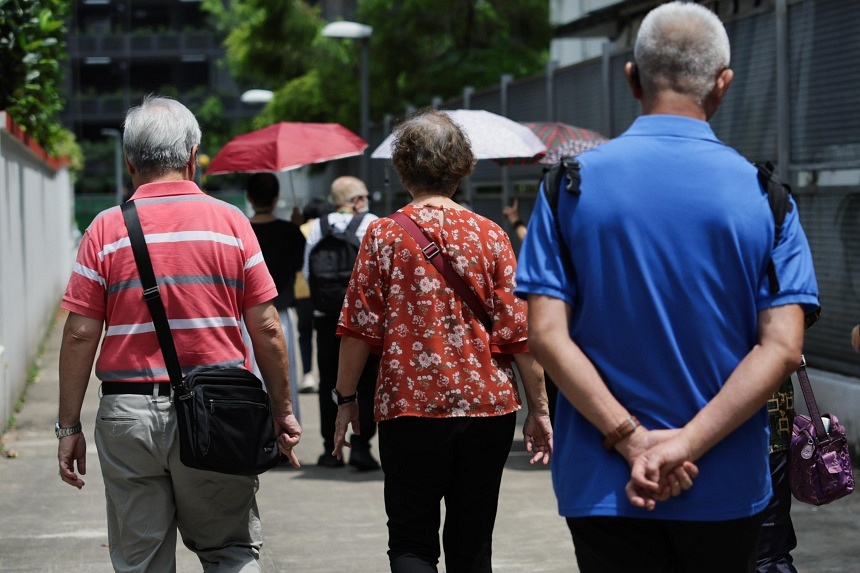How can I reduce the risk of developing dementia?

SINGAPORE – The number of dementia cases is rising worldwide as more people live longer.
Each year, 10 million new cases of dementia are reported worldwide, with the number expected to hit 78 million in 2030.
However, there is still hope.
In August, The Straits Times reported that a study by the Institute of Mental Health (IMH) found that while the number of seniors with dementia rose from 51,934 in 2013 to 73,918 in 2023 – because of an increase in the adult population here – the prevalence of dementia among older adults aged 60 and above here had dropped to 8.8 per cent, down from 10 per cent in 2013.
Additionally, the results of new research commissioned by medical journal The Lancet published in August found that up to 45 per cent of dementia cases could potentially be delayed or reduced.
Caused by damage to nerve cells and their connections in the brain, dementia is an umbrella term for various neurological conditions that lead to a decline in cognitive function, including Alzheimer’s disease.
Though it is more common in those aged 65 and older, it can happen to anyone. There is no cure, though treatments are available to manage the symptoms and slow down its progression.
The third updated report of the Lancet Commission on Dementia identified two new risk factors that, if addressed, could prevent dementia.
Authored by 27 experts, the new report said that an estimated 7 per cent of cases can be attributed to high levels of low-density lipoprotein, or “bad” cholesterol, from around the age of 40.
High levels of cholesterol in the brain are linked to an increased risk of stroke, and can also cause two proteins – amyloid and tau – which are linked to Alzheimer’s disease, to build up.
Becoming more physically active and staying away from processed food high in saturated fats, as well as avoiding smoking and alcohol, are ways in which cholesterol levels can be managed.
Even light physical activity can help reduce the risk, according to a study of more than 62,000 seniors in South Korea whose results were published in medical journal Jama Network Open in 2021.
Meanwhile, 2 per cent of cases are attributed to untreated vision loss later in life, according to the report.
The number could be even higher, with research results published in Jama Ophthalmology in September suggesting that up to 19 per cent of cases in the elderly could be due to vision impairment.
While the link between the two has not yet been established, it could be linked to diabetes – a risk factor for dementia that can also cause vision problems – or shared pathways in the brain that cause both vision loss and a decline in memory.
Correcting vision loss – via methods such as the use of spectacles or cataract surgery – could help reduce this risk.
These two factors are in addition to 12 others identified in earlier iterations of the report: lower levels of education, hearing impairment, high blood pressure, smoking, obesity, depression, physical inactivity, diabetes, excessive alcohol consumption, traumatic brain injury, air pollution and social isolation.
The report said that both government and individuals can play a role in reducing dementia risks, suggesting measures such as reducing exposure to air pollution through strict clean air policies, expanding measures to reduce smoking, and reducing the level of sugar and salt in food sold in shops and restaurants.
The findings from the Lancet Commission on Dementia were presented at the Alzheimer’s Association International Conference held in Philadelphia in the US in July by Professor Gill Livingston from University College London, who led the research.
“Healthy lifestyles that involve regular exercise, not smoking, cognitive activity in midlife – including outside formal education – and avoiding excess alcohol can not only lower dementia risk, but may also push back dementia onset,” she told British newspaper The Guardian.
And while many seniors may have retired, work could help stave off dementia, with IMH identifying increased employment among seniors as one of the factors behind the drop in the number of cases.
Dr Mythily Subramaniam, assistant chairman of IMH’s medical board for research and a co-investigator of the study, previously told The Straits Times that work can stimulate the brain, while having a social network at the workplace can also act as a bulwark against the condition.
Various studies have pointed to later retirement as a means of protecting against cognitive decline.
Additionally, mastering a new language or learning to play an instrument can also help keep dementia at bay, said HealthHub.
The national health portal noted that research suggests learning helps create new connections between neurons, especially if picking up an unfamiliar skill.
- Simply Science is a series that looks at the science behind everyday questions.
Join ST's WhatsApp Channel and get the latest news and must-reads.






No comments:
Post a Comment